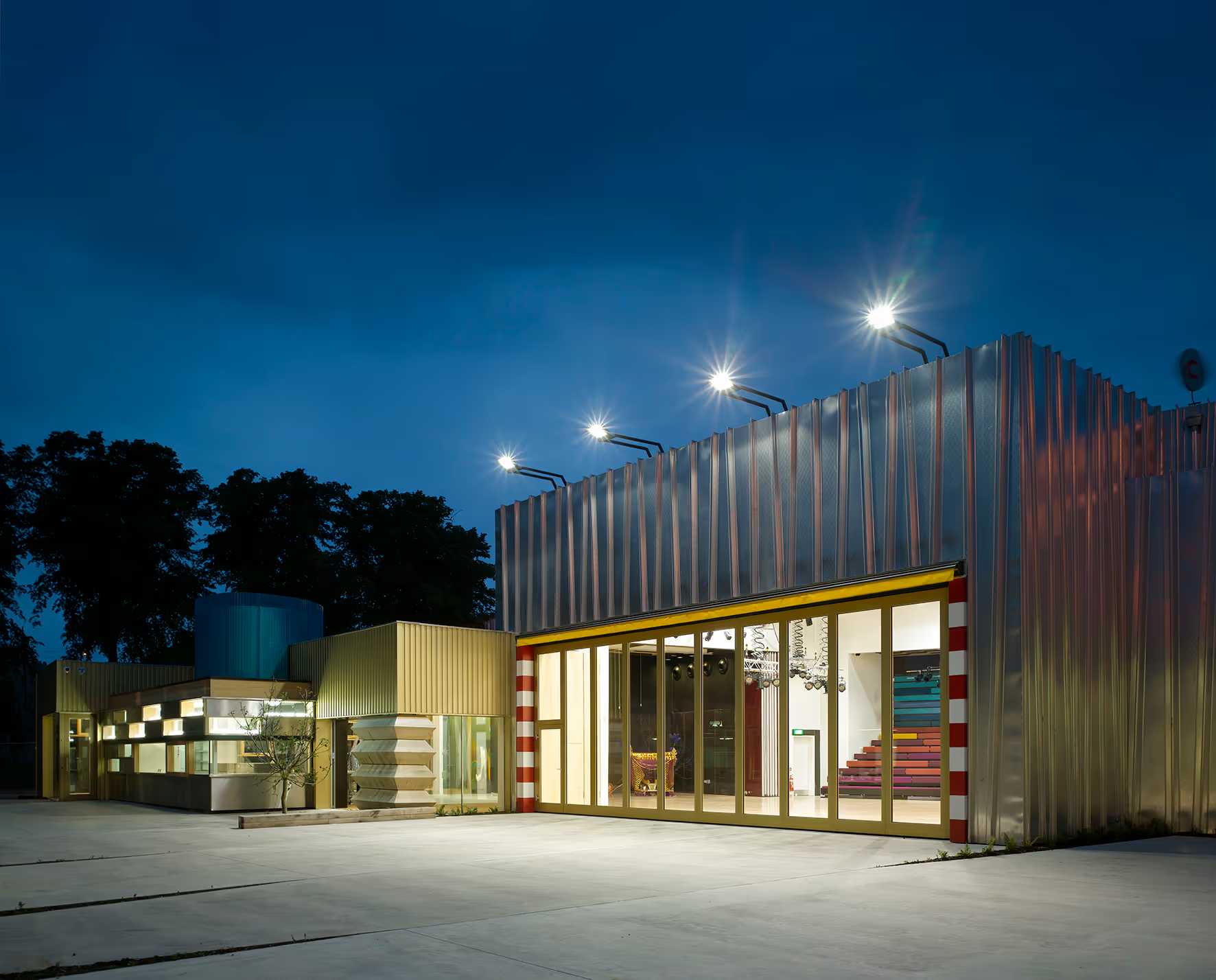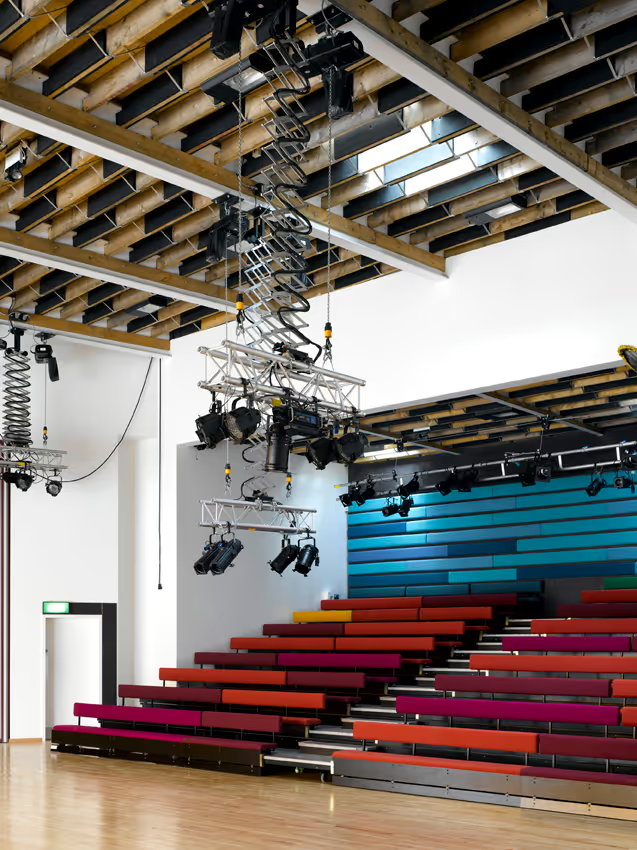
Carnival Arts Centre
Luton’s lively carnival tradition can been traced back to the fifteenth century, but it developed into its present form in the 1970s, acquiring international status in 1998. It is now the largest one-day carnival in the UK, second only to the Notting Hill Carnival.
Carnival artists work at the edge of possibility, designing large moving structures that are highly complex yet light enough to wear and walk in for hours. Our building celebrates this improvisational and experimental ethic by attempting, like Carnival itself, to be "strange, shambolic and magnificent."
This is an exuberant, colourful, inventive building dedicated to the performance and celebration of carnival arts.
2011 RIBA Award for Architecture
Client: UKCCA UK Centre for Carnival Arts
Completion: 2009
Value: £3.5m


